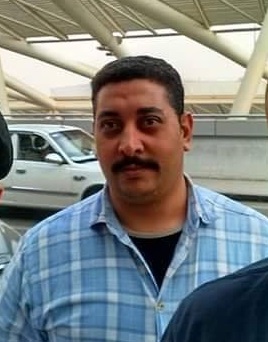
The family of a Coptic barber, who died at a police station where he had gone to report threats, say they believe he was beaten to death.
Maher Girgis Tawfiq, a 43-year-old father-of-four from the city of Beni Suef, had gone to the local police station on Friday 20 July to complain about alleged threats he had received following a disagreement with a Muslim man from whom he had hired a car.
But at around midnight, his wife received a call from the police, telling her that her husband had fainted and been transferred to hospital in a critical condition. The family rushed to the hospital, where they were told that Tawfiq had died at the reception of the emergency department.
The police told local media that the Copt had died after falling into a coma due to his diabetes, but his family say he was not diabetic and that they believe he was murdered.
“We headed to the morgue to see Maher’s body and noticed some bruises on different parts of it – a blue bruise at the back of his neck, his lips turned blue, and we saw white foam coming out of his mouth,” his cousin, Sameh, told World Watch Monitor. “There was also blood in his pupils.” (The family showed photographs of the dead body to World Watch Monitor – too graphic to publish – which match up with this description.)
Sameh said the prosecutor that they had called to investigate the case tried to convince them to take the body without a post-mortem, and that, having insisted on it, they were then told the report would “take time”.
“A group of police officers threatened Maher’s brothers that if they insisted that he was killed at the police station or demanded an autopsy, they would receive charges, meaning the police would fabricate charges against them,” Maher Tawfiq’s brother-in-law, George Erian, told World Watch Monitor.
“The perpetrator must be brought to a fair trial,” he said. “I will not find consolation until the perpetrators are held accountable. We want to feel that we live under the rule of law, with justice and equality, and not in a state of repression within the walls of state institutions, and of bullying outside those walls.”
Following the post-mortem examination, Tawfiq’s family received his body and a funeral service took place at the Church of St. Anba Antonius and St. Anba Paula, in Beni Suef, on Saturday, 21 July, after which he was buried in the family cemetery.
Why did he go to the police?
According to his family, four days before his death, on 16 July, Maher Tawfiq had arranged a trip with his wife and made a verbal arrangement with a Muslim man named Ahmed Yahya that he would rent his car for the day for EGP1,000 (US$55).
But when he went to return the car and to pay the agreed amount, they say Yahya increased the price by EGP500 (US$30). When he refused, Yahya reportedly threatened to destroy his barbershop.
His family say that two days later, on 18 July, Yahya came to Tawfiq’s barbershop with more threats, while he and his wife were in their apartment above the shop.
“Ahmed broke the lock of the door of the barbershop and shouted at Maher, who was watching from his balcony, that the amount due had now become EGP5,000 (US$280), and gave him four days to pay, threatening to otherwise burn the shop,” Tawfiq’s brother-in-law told World Watch Monitor, adding that it was at this point that he had decided to avoid confrontation and instead go to the police.
This is not the first example of a Copt dying in mysterious circumstances in an Egyptian police station. Last year, World Watch Monitor reported the case of Gamal Kamal Aweida, 41, whom police said had committed suicide but whose body showed signs of torture according to his family. Rights group Amnesty International also reported his case, and demanded an explanation from the authorities.